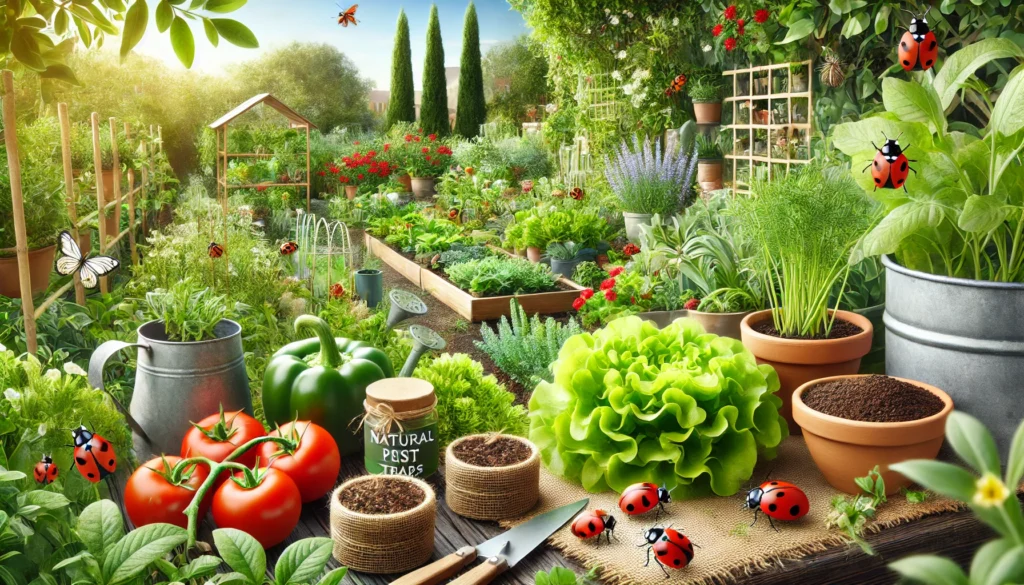Organic gardening is a rewarding approach that allows you to grow healthy, pesticide-free plants while maintaining the balance of nature in your garden. However, common pests can quickly become a challenge. Instead of reaching for synthetic chemicals, consider natural, eco-friendly methods that protect your plants without harming beneficial insects or polluting the environment. This article outlines effective strategies to deal with the most common pests found in organic gardens and offers practical, sustainable solutions.
1. Aphids
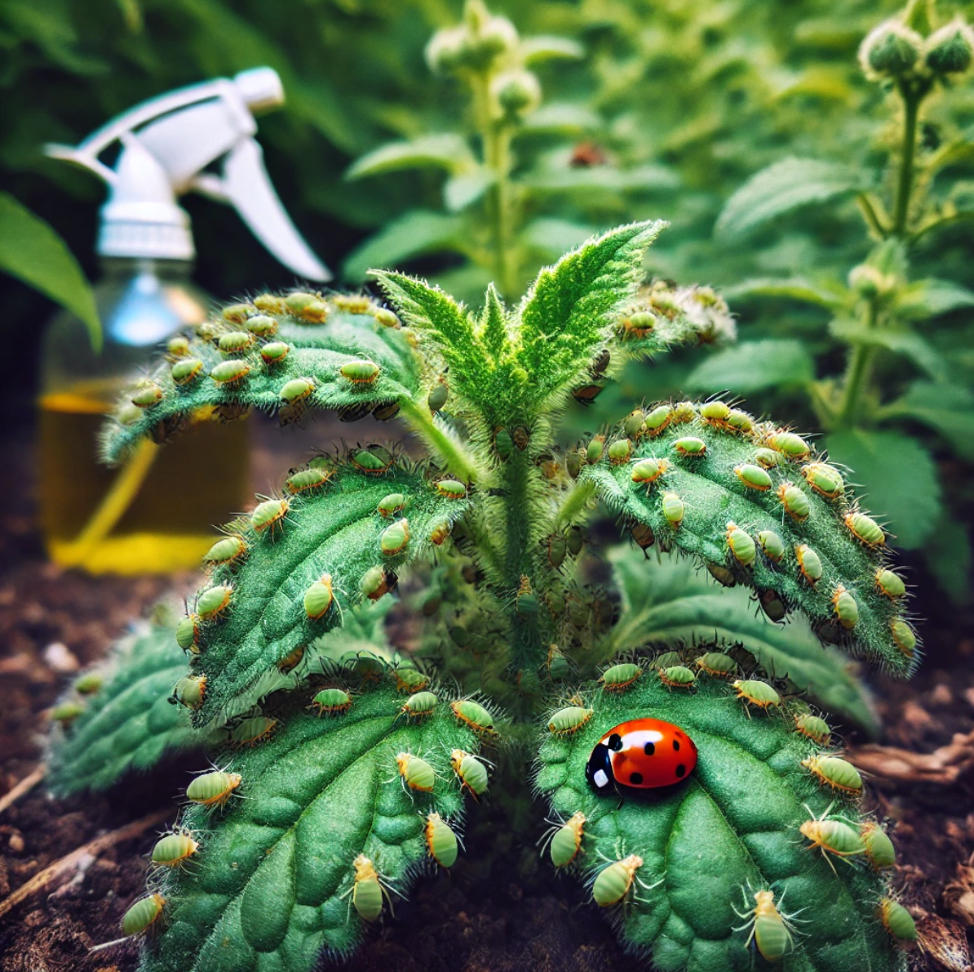
Aphids are tiny, soft-bodied insects that feed on the sap of plants, often clustering on the undersides of leaves. They can cause leaf curling, yellowing, and stunted growth.
Natural Solutions:
- Introduce beneficial insects: Ladybugs and lacewings are natural predators of aphids. By introducing these beneficial insects into your garden, you can naturally reduce aphid populations.
- Spray with neem oil: Neem oil is an organic pesticide that disrupts aphid reproduction and growth. Apply a diluted neem oil solution to affected plants.
- Garlic or onion spray: A homemade garlic or onion spray can repel aphids. Crush garlic cloves or onions, mix with water, and spray it on plants every few days until the aphids are gone.
2. Slugs and Snails
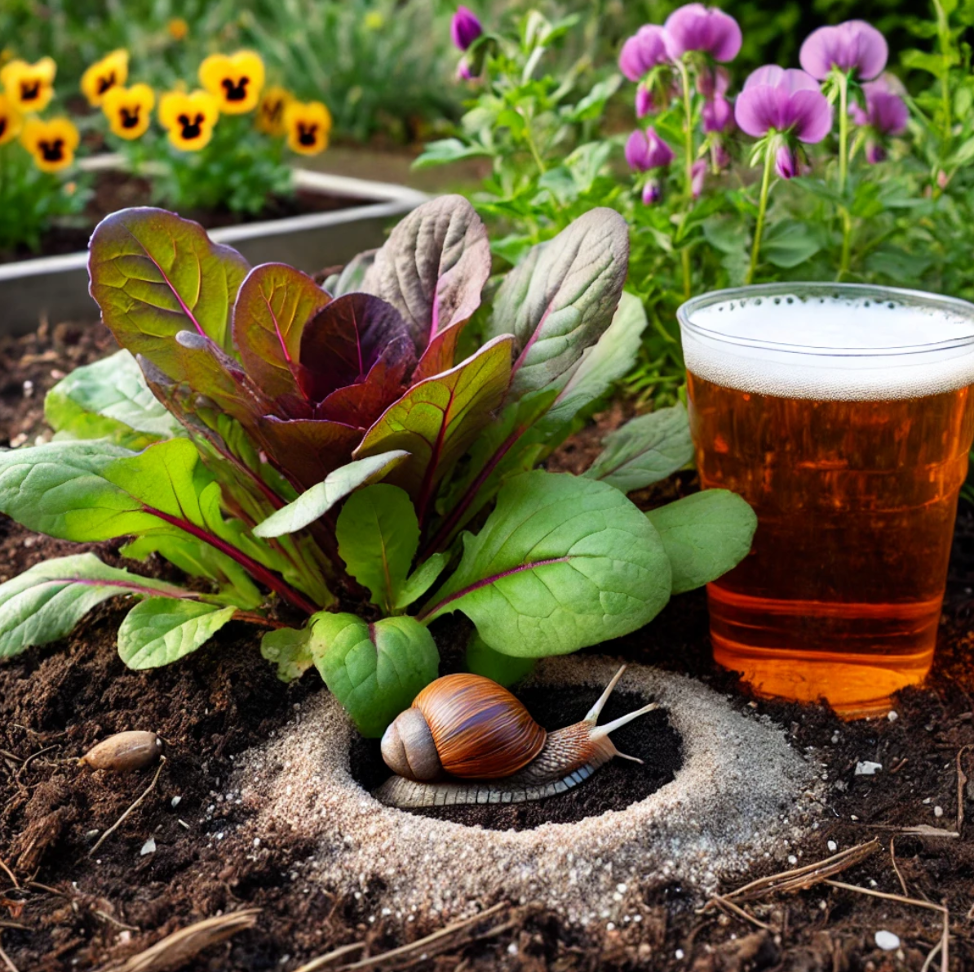
These slimy pests can cause significant damage to leaves, stems, and fruits, especially in wet and shady conditions.
Natural Solutions:
- Use diatomaceous earth: Diatomaceous earth is a natural powder that dehydrates slugs and snails when they come into contact with it. Sprinkle it around the base of plants to create a barrier.
- Beer traps: Bury a shallow container filled with beer near plants. Slugs and snails are attracted to the yeast, fall into the container, and drown.
- Handpicking: During early morning or evening, manually remove slugs and snails from plants. Drop them into a bucket of soapy water for disposal.
3. Caterpillars
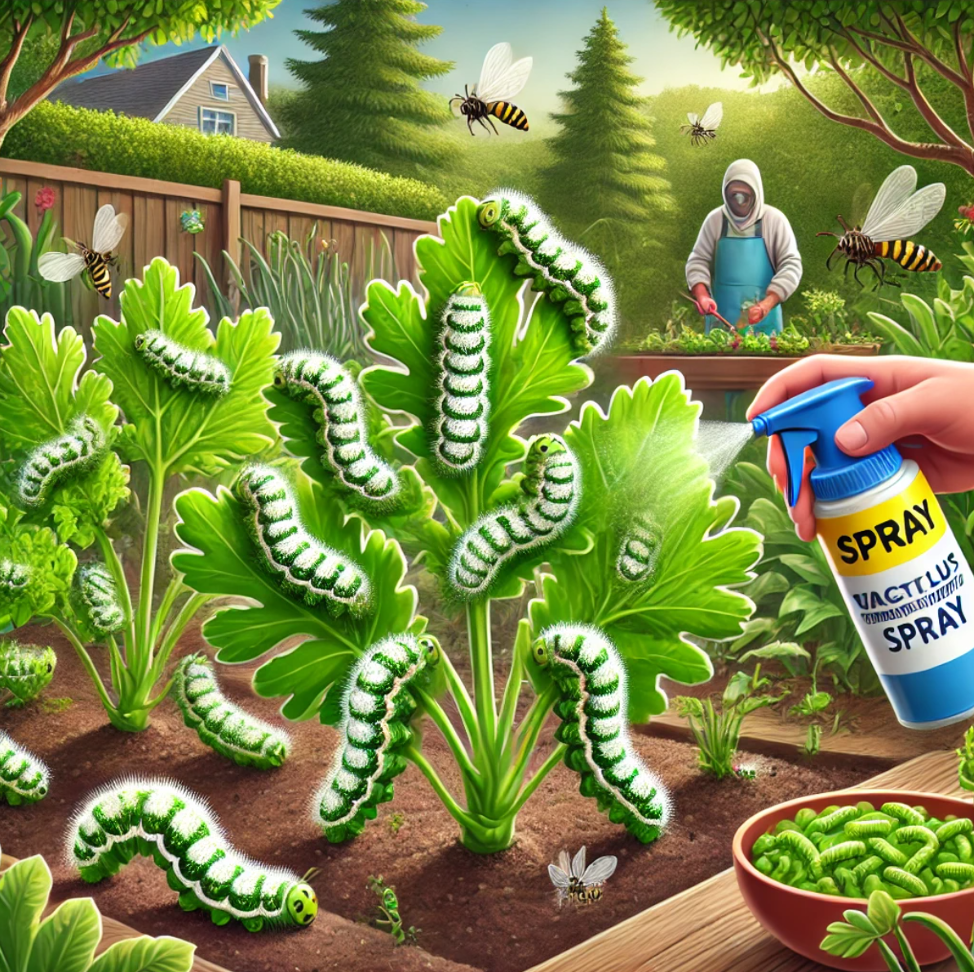
Caterpillars, the larvae of moths and butterflies, can strip leaves and cause extensive damage to your plants.
Natural Solutions:
- Bacillus thuringiensis (Bt): Bt is a naturally occurring bacterium that targets caterpillars without harming other insects. Apply it as a spray to affected plants.
- Hand removal: Check plants for caterpillars and manually remove them.
- Companion planting: Planting dill, fennel, and parsley can attract parasitic wasps, which lay their eggs on caterpillars. The wasp larvae then feed on the caterpillars, naturally controlling their population.
4. Spider Mites
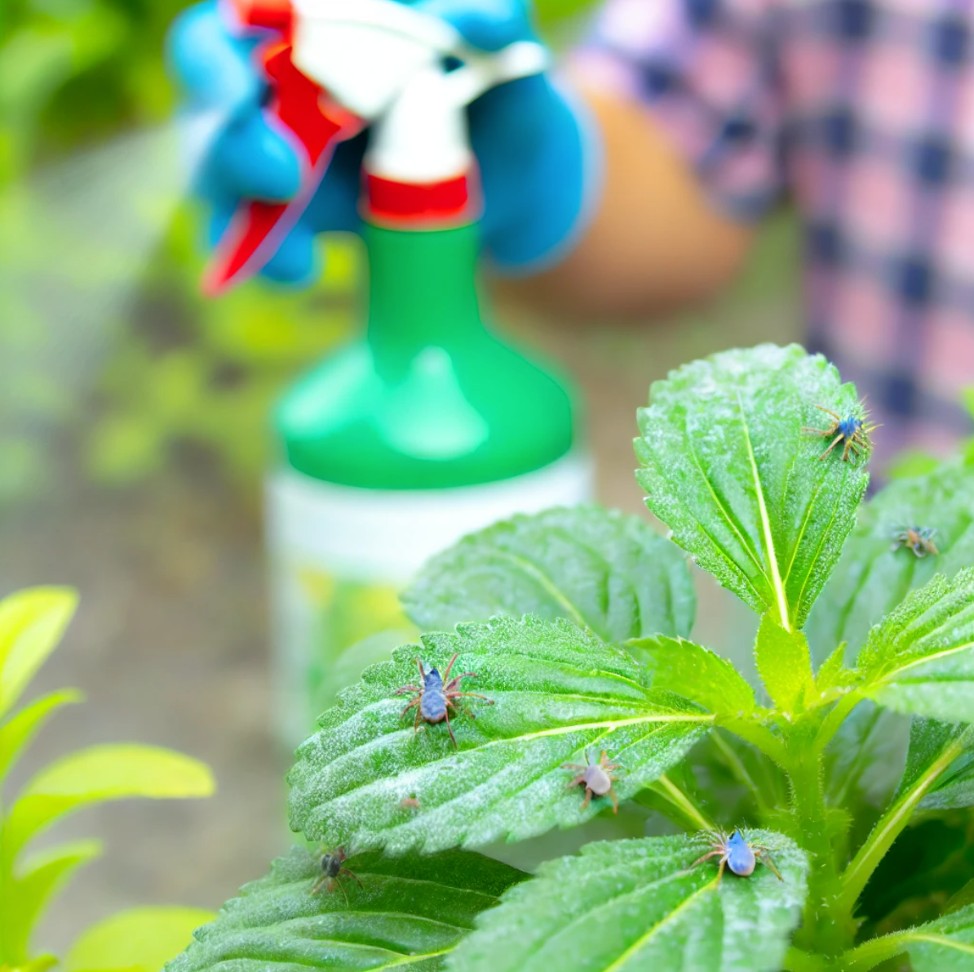
Spider mites are tiny pests that thrive in hot, dry conditions, feeding on the undersides of leaves and leaving yellow spots or a fine webbing behind.
Natural Solutions:
- Increase humidity: Spider mites prefer dry environments. Regularly mist your plants or increase humidity levels around them to deter mites.
- Introduce predatory mites: Predatory mites are a natural enemy of spider mites and can help keep their population in check.
- Insecticidal soap: A diluted solution of insecticidal soap can kill spider mites on contact. Apply the solution to the underside of leaves for maximum effectiveness.
5. Whiteflies
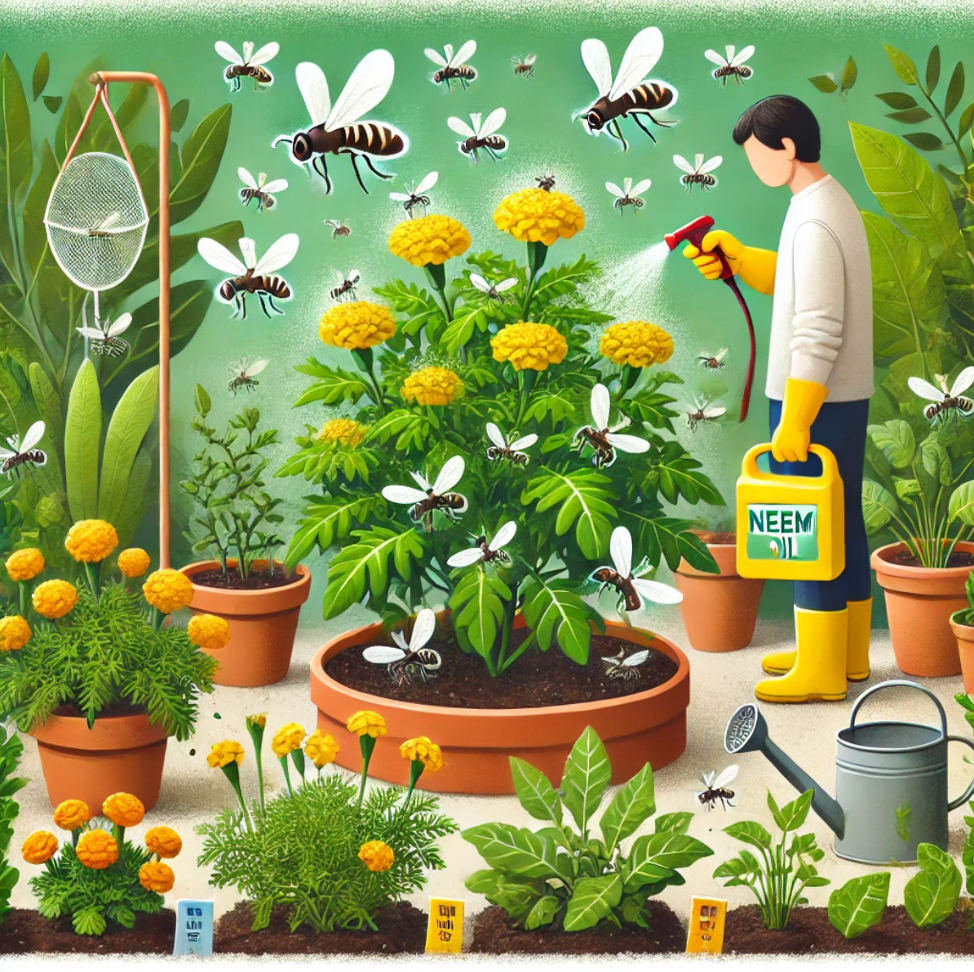
Whiteflies are small, white-winged insects that suck the sap from plants, leading to yellowing and wilting leaves.
Natural Solutions:
- Yellow sticky traps: Whiteflies are attracted to the color yellow. Place yellow sticky traps near your plants to catch them.
- Neem oil: As with aphids, neem oil is an effective treatment for whiteflies, disrupting their lifecycle and repelling them.
- Companion planting: Marigolds and nasturtiums can repel whiteflies naturally, so plant these flowers around your garden to help protect vulnerable plants.
6. Cutworms

Cutworms are caterpillars that live in the soil and cut down young seedlings at the base, making them a significant threat to newly planted gardens.
Natural Solutions:
- Create barriers: Surround seedlings with collars made from cardboard or plastic to prevent cutworms from reaching them.
- Till the soil: Tilling the soil before planting can expose cutworms to birds and other predators.
- Sprinkle coffee grounds: Used coffee grounds can deter cutworms when spread around the base of plants, as the sharp texture irritates their soft bodies.
7. Ants
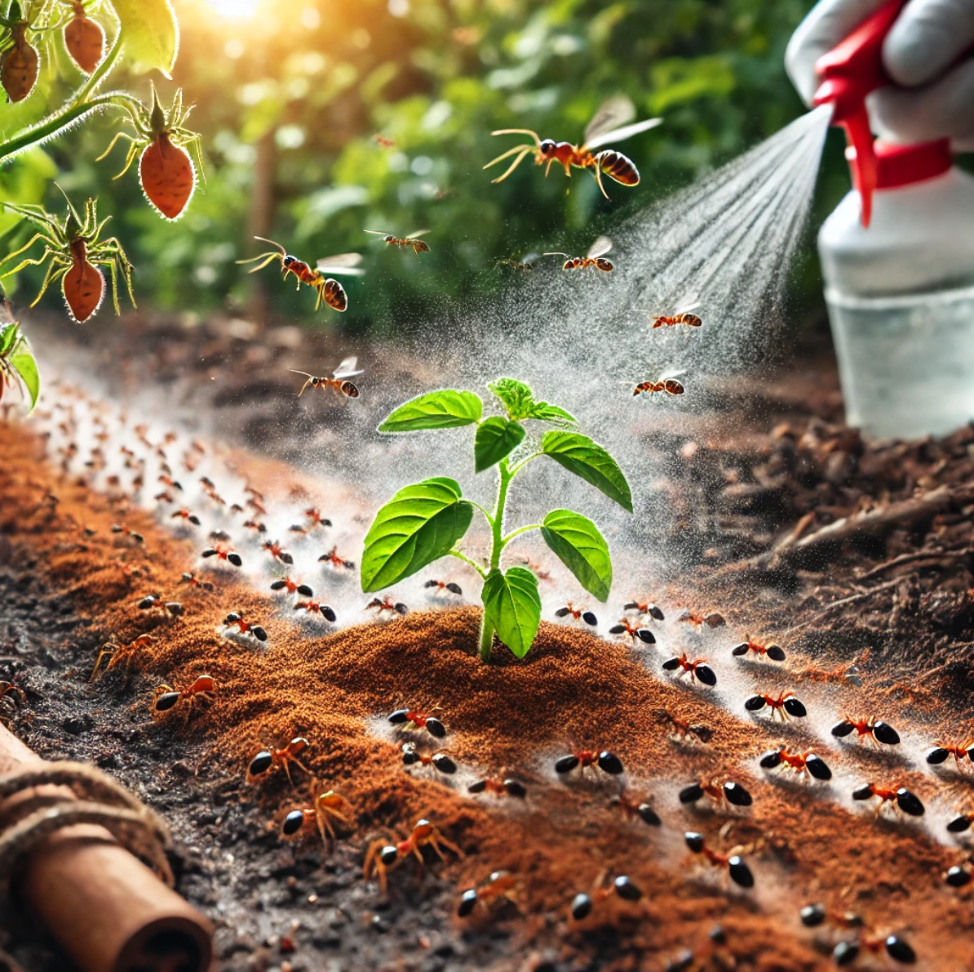
While ants don’t directly damage plants, they often farm aphids for their honeydew, making aphid infestations worse.
Natural Solutions:
- Disrupt the aphid-ant relationship: Control aphid populations to naturally reduce the presence of ants.
- Cinnamon or cayenne pepper: Sprinkle these spices around the base of plants to repel ants. You can also create a barrier with diatomaceous earth, which deters ants.
- Vinegar and water spray: A mixture of equal parts vinegar and water can be sprayed on ant trails and entry points to disrupt their movement.
8. Earwigs
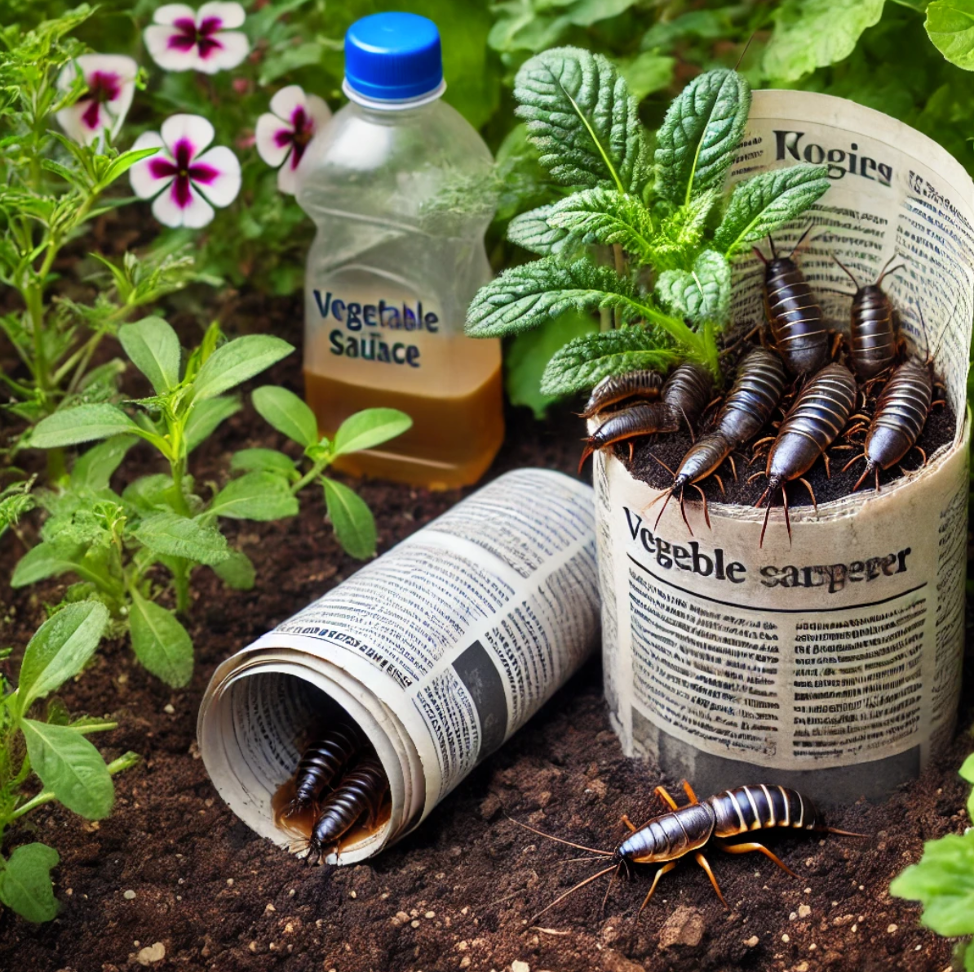
Earwigs can be beneficial as they eat pests, but they also chew on leaves, flowers, and fruits, particularly in damp, shady areas.
Natural Solutions:
- Damp newspaper traps: Roll up damp newspapers and place them around your garden at night. Earwigs will hide in them, and you can dispose of the newspaper in the morning.
- Remove debris: Earwigs hide in garden debris, so keeping your garden clean and free of leaf litter or piles of organic matter can reduce their population.
- Oil and soy sauce traps: Fill a shallow container with vegetable oil and soy sauce. The scent attracts earwigs, and they drown in the liquid.
9. Squash Bugs
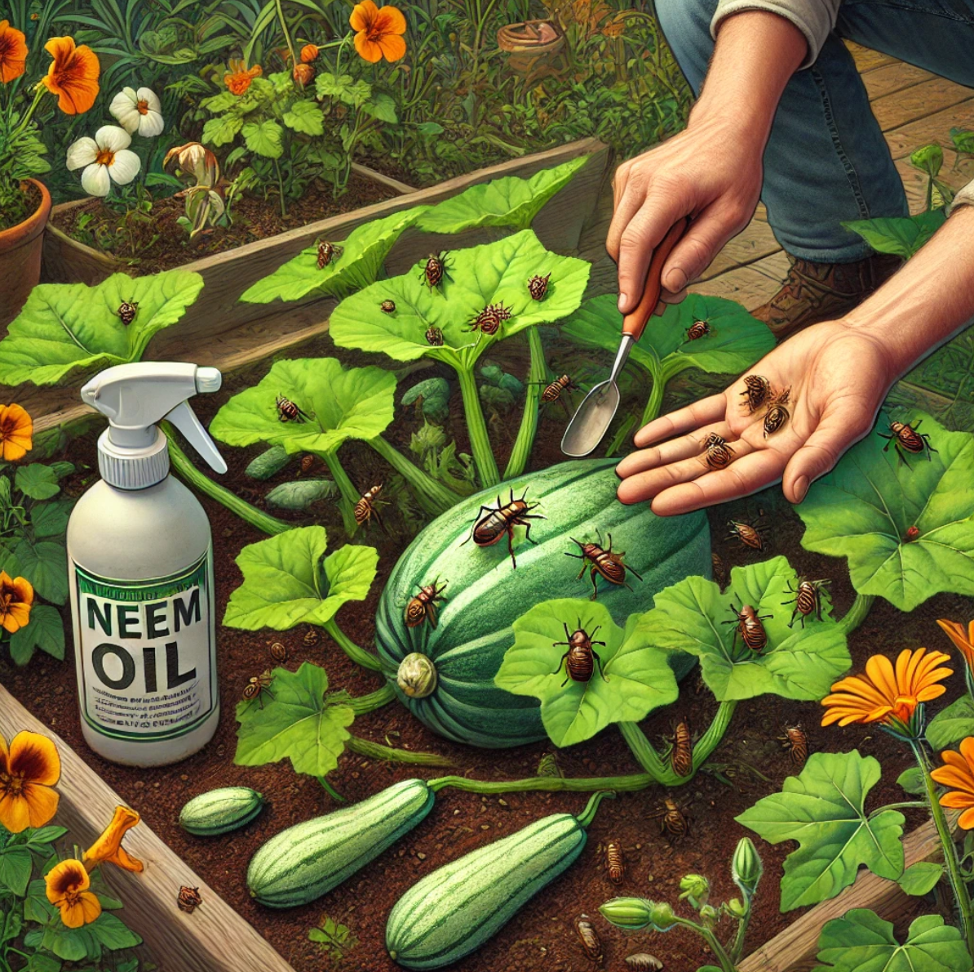
Squash bugs attack squash, pumpkins, and related plants, causing wilting and yellowing.
Natural Solutions:
- Handpick adults and eggs: Regularly inspect your plants for squash bugs and their bronze-colored eggs, especially on the undersides of leaves. Remove them by hand.
- Companion planting: Planting nasturtiums, marigolds, and radishes around your squash plants can help repel squash bugs.
- Neem oil: Apply neem oil to deter squash bugs and prevent them from laying eggs.
Conclusion natural pest control methods
Maintaining a pest-free organic garden requires vigilance and knowledge, but using natural methods ensures that your garden stays healthy without resorting to harmful chemicals. By introducing beneficial insects, using natural sprays and barriers, and implementing cultural practices like companion planting, you can effectively manage common pests while preserving the ecological balance in your garden.

